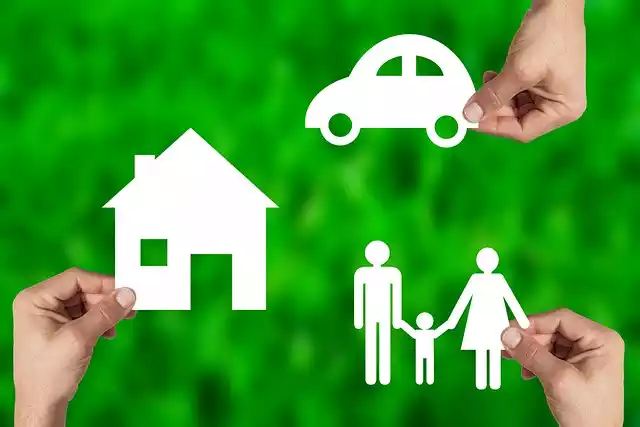Are you struggling to keep up with multiple debt payments each month? Do you find yourself overwhelmed by the high interest rates you’re paying on your credit cards? If so, you may want to consider debt consolidation.
Table of Contents
In today’s fast-paced world, managing multiple debts can be overwhelming. Juggling various monthly payments, each with its own interest rate, due date, and terms, can lead to financial stress and confusion. This is where debt consolidation comes to the rescue, offering a strategic approach to streamline payments and reduce interest costs. In this blog post, we will delve into the concept of debt consolidation, exploring its benefits, methods, and how it can pave the way to financial freedom.
What is debt consolidation?
Debt consolidation is the process of combining multiple debts into a single, more manageable loan or payment plan. This can be achieved through various methods, such as taking out a personal loan, using a balance transfer credit card, or opting for a home equity loan. The primary goal is to simplify the repayment process and potentially reduce the overall interest burden.
How does debt consolidation work?
There are a few different ways to consolidate your debts. One common method is to take out a personal loan to pay off your existing debts. You can also consolidate your debts using a balance transfer credit card or a home equity loan.
How Does Debt Consolidation Work? A Guide to Simplifying Your Finances
In the maze of financial obligations, debt consolidation emerges as a beacon of hope, offering a path towards streamlined repayments and potentially lower interest rates. But how does debt consolidation work, and is it the right choice for you? Let’s delve into the world of debt consolidation and unravel its intricacies.
The Essence of Debt Consolidation
Debt consolidation involves combining multiple debts into a single, unified loan. This strategy simplifies your financial landscape by replacing numerous payments with one manageable monthly payment. The goal is to secure a lower interest rate on the consolidated loan, leading to potential savings and a faster debt payoff timeline.
Common Debt Consolidation Methods
Several methods can be employed to consolidate your debts:
- Personal Loans: These unsecured loans typically offer lower interest rates than credit cards, potentially reducing your overall interest costs.
- Home Equity Loans or Lines of Credit: If you own a home with equity, tapping into its value can provide a lower interest rate for debt consolidation. However, this method involves using your home as collateral.
- Balance Transfer Credit Cards: These cards offer a 0% introductory APR period, allowing you to transfer your debt without accruing interest during that time. However, be mindful of high fees and the eventual return to a standard interest rate.
What are the benefits of debt consolidation?
There are several potential benefits to debt consolidation. These include:
- Simplified Finances: One of the most significant advantages of debt consolidation is the simplification of your financial landscape. Instead of navigating through a maze of multiple due dates, interest rates, and creditors, debt consolidation condenses your various debts into a single, more manageable monthly payment. This not only eases the mental burden but also provides a clear roadmap for your financial recovery.
- Lower Interest Rates: Debt consolidation often comes with the enticing benefit of lower interest rates. By consolidating multiple high-interest debts into a single, more favorable rate, you can significantly reduce the overall amount you’ll pay in interest over the life of the loan. This not only translates to immediate financial relief but also accelerates your journey to becoming debt-free.
- Reduced Monthly Payments: With debt consolidation, you may find yourself facing lower monthly payments. This can be particularly advantageous if you’ve been struggling to meet the demands of your existing debts. While the extension of the repayment period might mean paying more interest in the long run, the immediate relief provided by lower monthly payments can be a game-changer for your budget.
- Improved Credit Score: Effectively managing your debts through consolidation can have a positive impact on your credit score. As you make consistent, on-time payments, you demonstrate financial responsibility, which can contribute to an uptick in your credit score over time. A healthier credit score opens doors to better financial opportunities in the future.
- Flexible Repayment Terms: Debt consolidation offers the flexibility to choose repayment terms that align with your financial goals. Whether you prefer a shorter, more aggressive payoff plan or a longer-term approach with lower monthly payments, the ability to tailor the terms of your consolidation loan to your unique needs is a significant advantage.
- Protection from Collection Calls: For those drowning in debt, the constant barrage of collection calls can be a source of stress and anxiety. Debt consolidation provides a reprieve by consolidating your debts into a single payment, reducing the frequency and intensity of collection calls. This allows you to regain control over your financial narrative and focus on your path to financial recovery.
Debt consolidation is not merely a financial strategy; it’s a transformative journey toward financial freedom. The benefits of simplified finances, lower interest rates, reduced monthly payments, credit score improvement, flexible repayment terms, and protection from collection calls collectively create a compelling case for those seeking relief from the burdens of multiple debts.
As you consider the benefits of debt consolidation, remember that success lies not only in the strategy itself but in your commitment to sound financial practices. By embracing the advantages of debt consolidation and adopting responsible financial habits, you can pave the way to a brighter, debt-free future.
What are the potential drawbacks of debt consolidation?

While debt consolidation stands as a beacon of financial hope for many, it’s essential to approach it with a discerning eye. Like any financial strategy, debt consolidation comes with its own set of potential drawbacks that warrant careful consideration. Let’s explore the flip side of the coin and shed light on the possible pitfalls associated with debt consolidation.
- Extended Repayment Periods: One of the trade-offs of debt consolidation is the potential extension of your repayment period. While this results in lower monthly payments, it also means paying interest over a more extended timeframe. Individuals opting for debt consolidation should weigh the immediate relief of lower payments against the long-term cost of additional interest.
- Accumulation of More Debt: Consolidating existing debts doesn’t erase the root causes of financial challenges. Some individuals, after consolidating their debts, may fall into the trap of accumulating more debt, given the newfound availability of credit. Without addressing the underlying spending habits, debt consolidation may only serve as a temporary solution.
- Risk of Secured Loans: Opting for a secured loan, where collateral such as a home or car is involved, poses a potential risk. If you struggle with repayment and default on a secured loan, you could face the loss of the pledged asset. It’s crucial to assess your ability to meet the terms of a secured loan before considering this option.
- Balance Transfer Fees: For those utilizing balance transfer credit cards as a debt consolidation method, be wary of balance transfer fees. While the allure of a low or 0% introductory interest rate may be enticing, balance transfer fees can eat into potential savings. Understanding the terms and fees associated with balance transfers is vital to making an informed decision.
- Impact on Credit Score: While debt consolidation can have a positive impact on credit scores over time, the immediate effect may be a temporary dip. Closing multiple credit accounts or opening new lines of credit can influence your credit score. It’s essential to be prepared for potential short-term fluctuations and have a plan to rebuild your credit over time.
- Not Suitable for All Debts: Debt consolidation may not be the ideal solution for all types of debt. High-interest credit card debt is a common candidate, but other types of debt, such as certain student loans or tax debts, may have specific repayment programs or benefits that debt consolidation doesn’t offer.
As with any financial strategy, debt consolidation is not a one-size-fits-all solution, and it comes with its own set of potential drawbacks. While the benefits can be transformative, it’s crucial to approach debt consolidation with a clear understanding of the trade-offs involved. By carefully weighing the potential drawbacks and benefits, and seeking professional advice when needed, you can make an informed decision that aligns with your financial goals and sets you on the path to lasting financial well-being.
Is debt consolidation right for you?
The decision of whether debt consolidation is right for you hinges on a careful evaluation of your unique financial circumstances, goals, and discipline. By assessing your debt landscape, understanding the benefits and potential drawbacks, and considering your long-term financial objectives, you can make an informed decision that aligns with your path to financial well-being.
How to consolidate your debt?
If you’re considering debt consolidation, there are a few steps you can take:
- Gather your information: Collect all of your debt statements and make a list of all of your outstanding debts, including the balance, interest rate, and minimum payment.
- Shop around for lenders: Compare interest rates and terms from different lenders to find the best deal.
- Get pre-approved: Getting pre-approved for a consolidation loan can give you an idea of the interest rate you can qualify for and make the process of getting funded faster.
- Make a plan: Once you’ve chosen a lender, create a plan for paying off your consolidated loan. This should include a monthly payment amount and a timeline for repayment.
Additional tips for managing your debt
In addition to debt consolidation, there are a few other things you can do to manage your debt:
- Create a budget: Track your income and expenses to see where your money is going.
- Cut back on spending: Look for ways to reduce your expenses, such as eating out less or canceling unused subscriptions.
- Increase your income: Consider taking on a side hustle or getting a raise to boost your income.
By taking steps to manage your debt, you can improve your financial situation and achieve your financial goals.
End Note on Debt Consolidation
Debt consolidation is a powerful tool for streamlining payments and reducing interest costs, offering a path towards financial stability. By understanding the benefits and exploring the various methods available, you can take control of your debt and work towards a debt-free future. Remember, the key to successful debt consolidation lies in careful planning, responsible financial management, and a commitment to breaking free from the cycle of debt.
FAQs – Related to Debt Consolidation
Should you consolidate your debt?
Consolidating debt can be a strategic financial move for some, streamlining multiple payments into one and potentially lowering interest rates. However, whether you should consolidate your debt depends on individual circumstances. Consider factors such as the types of debts, interest rates, and your ability to commit to a repayment plan. If you’re struggling to manage various debts and seeking simplicity, lower interest rates, and a clearer path to financial stability, consolidation may be worth exploring. It’s crucial to weigh the benefits against potential drawbacks and, when uncertain, consult with financial professionals for personalized advice tailored to your situation.
What is the Eligibility of Debt Consolidation?
Debt consolidation can be a valuable financial tool, but eligibility depends on individual circumstances. Generally, individuals with multiple high-interest debts, a steady income, and a reasonable credit score are eligible. Lenders or credit counseling agencies may evaluate your financial health, debt-to-income ratio, and credit history. However, those with poor credit or high debt levels may find it challenging to qualify for favorable terms. It’s crucial to assess your financial situation, explore available options, and seek professional advice to determine if debt consolidation aligns with your needs and eligibility.
How Many Time I Can Consolidate My Debt?
The number of times you can consolidate your debt depends on several factors, including your financial situation, creditworthiness, and available consolidation options. While there’s no strict limit on how many times you can consolidate debt, it’s essential to approach it strategically. Repeated consolidation may impact your credit score and financial stability. Instead of focusing on the frequency of consolidation, prioritize developing sound financial habits, budgeting effectively, and addressing the root causes of debt. Each consolidation should be a deliberate step toward financial health rather than a recurring solution.

